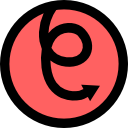
pyglet
pyglet is a cross-platform windowing and multimedia library for Python, intended for developing games and other visually rich applications. It supports Windowing, input event handling, Controllers & Joysticks, OpenGL graphics, loading images and videos, and playing sounds and music. pyglet works on Windows, OS X and Linux.
:exclamation: :exclamation: A major pyglet update has just been released (v2.1). This brings many new exciting features, but also some necessary breaking changes. If your game/application has suddenly stopped working, please read the migration section in the documentation The previous version of pyglet is tracked in the
pyglet-2.0-maintenancebranch. If you want to do a pull request for the previous release, please target the appropriate branch.
- pyglet documentation
- pyglet on PyPI
- pyglet discord server
- pyglet [mailing list]
- pyglet issue tracker
- pyglet website
pyglet has an active developer and user community. If you find a bug or a problem with the documentation, please open an issue. Anyone is welcome to join our discord server where a lot of the development discussion is going on. It's also a great place to ask for help.
Some features of pyglet are:
- No external dependencies or installation requirements. For most application and game requirements, pyglet needs nothing else besides Python, simplifying distribution and installation. It's easy to package and distribute your project with Nuitka or PyInstaller.
- Take advantage of multiple windows and multi-monitor desktops. pyglet allows you to use multiple platform-native windows, and is fully aware of multi-monitor setups for use with fullscreen games.
- Load images, sound, music and video in almost any format. pyglet can optionally use FFmpeg to play back audio formats such as MP3, OGG/Vorbis and WMA, and video formats such as MPEG2, H.264, H.265, WMV and Xvid. Without FFmpeg, pyglet contains built-in support for standard formats such as wav, png, bmp, and others.
- pyglet is written entirely in pure Python, and makes use of the ctypes module to interface with system libraries. You can modify the codebase or make a contribution without any second language compilation steps or compiler setup. Despite being pure Python, pyglet has excellent performance thanks to advanced batching for drawing thousands of objects.
- pyglet is provided under the BSD open-source license, allowing you to use it for both commercial and other open-source projects with very little restriction.
Requirements
pyglet runs under Python 3.8+. Being written in pure Python, it also works on other Python interpreters such as PyPy. Supported platforms are:
- Windows 7 or later
- Mac OS X 10.3 or later
- Linux, with the following libraries (most recent distributions will have
these in a default installation):
- OpenGL and GLX
- GDK 2.0+ or Pillow (required for loading images other than PNG and BMP)
- OpenAL or Pulseaudio (required for playing audio)
As of pyglet 2.0, OpenGL 3.3+ is required.
To play a large variety of compressed audio and video files, pyglet can optionally take advantage of FFmpeg.
Installation
pyglet is installable from PyPI:
pip install --upgrade --user pyglet
Installation from source
If you're reading this README from a source distribution, you can install pyglet with:
pip install --upgrade --user .
# or
python setup.py install --user
You can also install the latest development version directly from Github:
pip install --upgrade --user https://github.com/pyglet/pyglet/archive/master.zip
For local development install pyglet in editable mode:
# with pip
pip install -e .
# with setup.py
python setup.py develop
There are no compilation steps during the installation; if you prefer,
you can simply add this directory to your PYTHONPATH and use pyglet without
installing it. You can also copy pyglet directly into your project folder.
Contributing
A good way to start contributing to a component of pyglet is by its documentation. When studying the code you are going to work with, also read the associated docs. If you don't understand the code with the help of the docs, it is a sign that the docs should be improved. If you wish to make large changes to any part of pyglet, it's always a good idea to reach out for feedback first. This can avoid wasted effort in cases where someone is already working on something similar, or if your idea can't be accepted for any reason.
A basic outline of how to a contribution is as follows:
- Fork the official repository.
- In your fork, checkout the branch you wish to contribute to (such as pyglet-1.5-maintenance).
- Apply your changes to your fork.
- Submit a pull request describing the changes you have made.
- Alternatively you can create a patch and submit it to the issue tracker.
When making a pull request, check that you have addressed its respective documentation, both within the code docstrings and the programming guide (if applicable). It is very important to all of us that the documentation matches the latest code and vice versa.
Consequently, an error in the documentation, either because it is hard to understand or because it doesn't match the code, is a bug that deserves to be reported on a ticket.
Building Docs
To get started quickly:
pip install -r doc/requirements.txt
python make.py docs
Please check Documentation and Type Hints guide to learn more.
Testing
pyglet makes use of pytest for its test suite.
pip install -r tests/requirements.txt --user
# Only run unittests
pytest tests/unit
Please check the testing section in the development guide for more information about running and writing tests.
Contact
pyglet is developed by many individual volunteers, and there is no central point of contact. If you have a question about developing with pyglet, or you wish to contribute, please join the discord server, or subreddit.
For legal issues, please contact Alex Holkner.